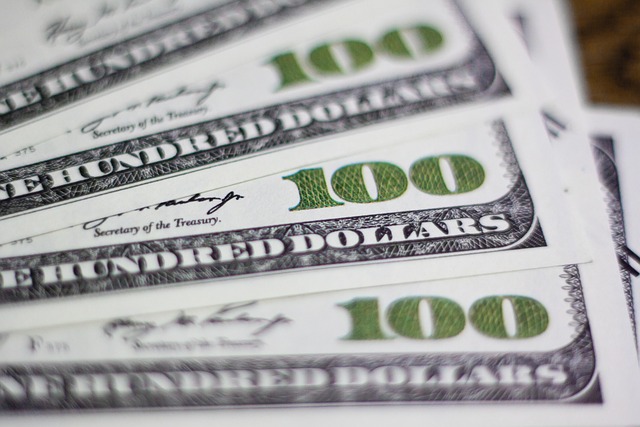Default On Student Loan
Student Loan Default: What It Means, What It Does, and How to Prevent It

Student loans have become a vital resource for millions of students. While these loans are a vital source of funding, many borrowers dread the prospect of default.
A default can have serious financial consequences and affect your credit rating for years. In this comprehensive guide, we explain what a student loan default means, what the consequences are, and practical strategies that can help you avoid it.
What is a student loan default?
A student loan default occurs when a borrower fails to make scheduled payments on their federal or private student loan for an extended period of time.
For federal student loans, default typically occurs after 270 days (about 9 months). For private loans, the default period varies by lender but is typically between 90 and 180 days.
Types of Student Loans
Government Student Loans: These include Direct Loans, Perkins Loans, and Stafford Loans, often with flexible repayment options.
Private Student Loans: Issued by banks, credit unions, or other private lenders, often with less flexible repayment terms.
It’s important to know what type of loan you have, as it affects the foreclosure process and possible solutions.
Signs of potential for default
Early signs of financial trouble include missed payments, late reminders, or notices from your lender. If these issues are not addressed, default can occur with serious consequences.
Common Causes of Default
Loss of Income or Unemployment
High Debt Ratio
Unexpected Expenses
Ignorance of Repayment Obligations
Being proactive and knowing your repayment terms can help prevent default.
Consequences of Student Loan Default
Defaulting on a student loan can have far-reaching consequences for your financial health, your creditworthiness, and your future ability to borrow. Let’s take a look at the most important consequences.
- Damage to your credit rating
A default on your credit score significantly lowers it, often by hundreds of points. This damage can remain on your credit report for up to seven years and make it difficult to get new loans, mortgages, or even leases. - Wage garnishment
The government can garnish up to 15% of your disposable income through wage garnishment without a court order. Private lenders can also take legal action against wages. - Tax refund garnishment
The IRS can withhold your federal tax refunds and set them off against your outstanding student loans in a process called tax refund setoff. - Loss of federal student aid eligibility
If you lose your credit score, you will no longer be eligible for additional federal student aid, including grants and loans, which could affect your ability to continue your education. - Legal Actions and Judgments
Private lenders can sue you for repayment. Judgments can lead to the seizure of your property or bank accounts. - Collection Fees and Additional Costs
Failure to make a payment can result in higher collection fees, late fees, and additional penalties, making repayment even more difficult.
How do you recognize a default?
Your lender will notify you when your account is in default. Common signs include:
Multiple missed payments
Collection notices
Legal action or garnishment
Regularly checking your loan account online will help you stay informed and avoid accidental defaults.
How do you prevent student loan defaults?
Prevention is better than cure. Here are some practical steps to keep your student loans in good standing:
- Choose the right repayment plan
Federal student loans offer several repayment options:
Standard repayment plan: Fixed payments over 10 years.
Sustainable repayment plan: Payments start low and increase over time.
Income-based repayment plans: Payments are based on your income and family size.
Extended repayment plan: Longer repayment period for lower monthly payments.
Evaluate your financial situation and choose the plan that minimizes your risk of default.
- Automate payments
With automatic payments, you’ll never miss a due date again. Many lenders offer interest discounts for automatic payments. - Contact your lender
If you’re having financial difficulties, contact your lender immediately. They may offer solutions like deferment, payment deferral, or income-based repayment plans. - Keep track of your loan balance and due dates
Review your bank statements regularly, update your contact information, and stay up to date on upcoming payments. - Budgeting and financial management
Create a realistic budget to prioritize student loan repayments and other necessary expenses. - Research student loan forgiveness and repayment assistance programs
Certain professional groups are eligible for student loan forgiveness (e.g., teachers, healthcare professionals). Research the options available in your area.
What to do if you’re late?
If you’re already late or at risk of being late, act quickly to minimize the damage:
- Contact your lender
Discuss your situation and explore options such as paying off or consolidating your loan. - Loan rehabilitation
This process involves making a series of agreed-upon payments over a period of several months to restore your loan to good standing. This can remove the “delayed” status from your Schufa report. - Loan Consolidation
Consolidating past-due loans can help you regain access to repayment plans and avoid further collection proceedings. - Create a repayment plan
Work with your lender to develop a sustainable repayment plan tailored to your financial situation. - Seek professional help
Financial advisors or student loan counselors can offer personalized strategies for dealing with defaults.
Benefits of preventing defaults
Keeping your student loans in good standing offers many benefits:
Improved creditworthiness
Access to new government incentives
Protection against garnishment and legal action
Alternatives for student loan forgiveness
Less financial stress and uncertainty
Proactive and well-founded measures ensure your financial health.
Conclusion

Student loan defaults are a serious matter with long-term consequences. With proper planning, communication, and prompt action, you can prevent defaults and secure your financial future.
Remember: your student loan lender is there for you – don’t hesitate to contact them if you have any concerns.
Learn about your repayment options and stay on top of your loan obligations. This will ensure that your studies remain a positive and stimulating experience and do not lead to financial hardship.